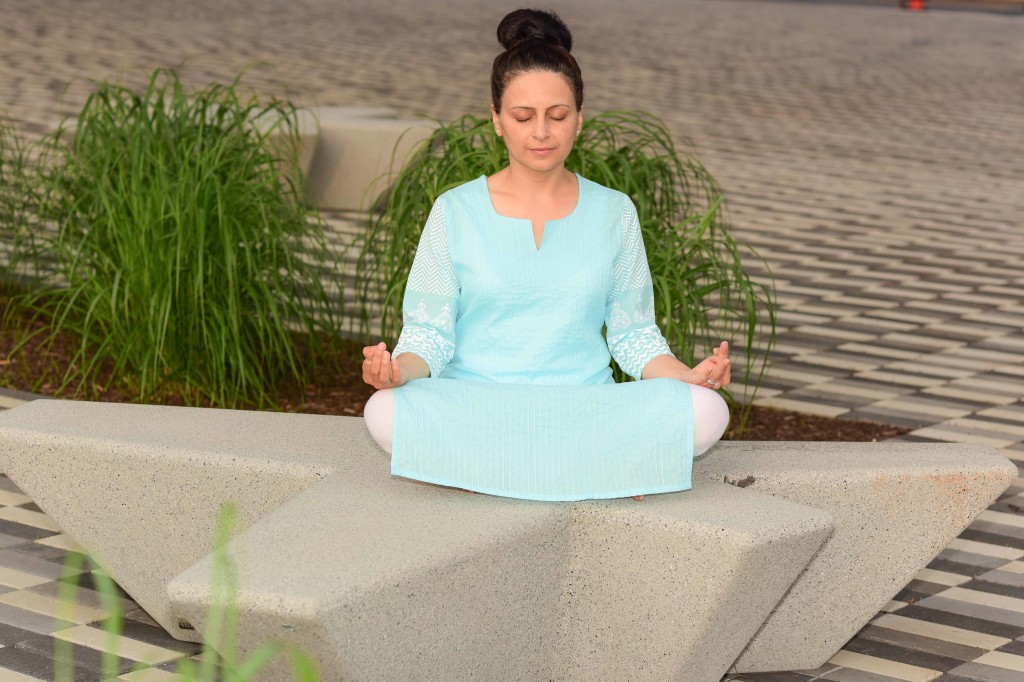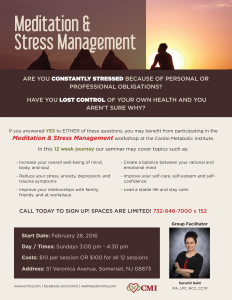
When we have an aching tooth, we’ll usually visit the dentist and have it taken care of. If we feel flu symptoms coming on, we’ll typically go to the doctor and get antibiotics. So when we feel stressed, anxious, or depressed, why is it that we so often do nothing to help ourselves, or if we do, why do we usually wait until the burden is nearly too much to bear rather than taking preventative measures?
We often cite a lack of time or the feeling of selfishness as reasons for not tending to our emotional and mental needs, but self-care is neither narcissistic nor does it have to be a big time commitment. While juggling work with raising kids, for example, can make it hard to fit in personal time, it’s an essential ingredient to good overall health.
Self-care is an important factor in maintaining stable relationships, creating a balance between your rational mind and your emotional mind, and boosting your self-confidence and self-esteem, and it’s vital for your mental and physical well-being.
The benefits of practicing self-care are numerous and substantial, and there are plenty of things we can do on a daily basis to help ourselves before the metaphorical weight on our shoulders, our hearts, and our minds threatens to crush us.
In conjunction with my 12-week Mediation & Stress Management program at the Cardio Metabolic Institute in NJ, this post and the next two will provide you with habits you can incorporate into your day-to-day routine in an effort to minimize your negative energy and set you on the course to a happier and healthier life.
The first ten habits cost nothing, and are good investments of little time and effort for life:
- Take a timeout. Spend thirty minutes, by yourself, doing something you enjoy that’s in no way related to work, family, or social obligations. If you are a very busy person then you need to practice this for 40 minutes. Yes that’s what’s needed.
- Find a quiet place, either at home or in nature, sit in a comfortable position, close your eyes, and focus solely on your breath. If you feel distracted, redirect your mind by saying “Oh Well” as many times as you need to. With the time, the gap between “Oh Wells” will decrease just keep trying.
- Write in a journal. Take few minutes daily to write what ever come to your mind without stopping the pen. No need to articulate or correct yourself, just keep writing your thoughts/emotions/words. Also, jot down something you like about yourself, something you accomplished, and something for which you are grateful.
- Power nap. Lower the lid on your laptop, turn your cell phone to silent, and snooze for twenty to thirty minutes. People who take power naps, process information better; have better memory & focus, and are less stressed.
- Escape in the latest fantasy book, romance novel, or an autobiography of a person you admire, your local library recently added to its shelves. When we read something that we enjoy, various parts of the brain get activated which release the “happy chemicals”
- De-clutter your internal & external environment. Since external seems easier for most people, let’s start with your pocketbook/wallet; your kitchen; your car; your desk and then of course select a few items from your closet or your drawers that you haven’t used in a year or two and donate them to Goodwill. For internal cleansing Meditation is a good start, its totally worth it.
- Practice yoga in its completeness. Yoga has eight Limbs. However you may start with the third limb as it is more popular in the West, called Asnas, the physical/exercise part of Yoga. It is important that you do under a guidance of a Guru or a teacher. If you don’t know about sun salutation or downward facing dog, YouTube is a wonderful source for information.
- Give yourself credit. When you succeed at something, major or minor, pat yourself on the back and tell yourself you did a great job, start talking to your brain.
- Go for a stroll. Whether it’s around your block or through the woods, walk at a pace that’s relaxing and comfortable. Make sure your head is straight while walking and that you are wearing appropriate shoes. Walking posture needs to be accurate.
- Watch the sunrise/sunset. Life depends on the Sun. Wherever you are, try to observe the sunrise, it gives you energy to go on with the day. When Sun sets, it calms you down and prepares your body’s natural rhythm to go back to sleep.
Look for the next blog post, which will have ten more recommendations for how to practice self-care.
 Happy Valentine’s day!!
Happy Valentine’s day!!
 Most of us will agree that raising children can be incredibly difficult, perhaps the most difficult task in life. We know that all children are different—from each other as well as from their parents, even if they share some of the genetic makeup of both sets of Grandparents, Mom, Dad, Sister, or Brother. There is no set way to raise children, no one parenting style that works for every parent and every child. There are, however, tips that professionals and parents alike deem reliable and valuable in most scenarios, with most children.
Most of us will agree that raising children can be incredibly difficult, perhaps the most difficult task in life. We know that all children are different—from each other as well as from their parents, even if they share some of the genetic makeup of both sets of Grandparents, Mom, Dad, Sister, or Brother. There is no set way to raise children, no one parenting style that works for every parent and every child. There are, however, tips that professionals and parents alike deem reliable and valuable in most scenarios, with most children.
